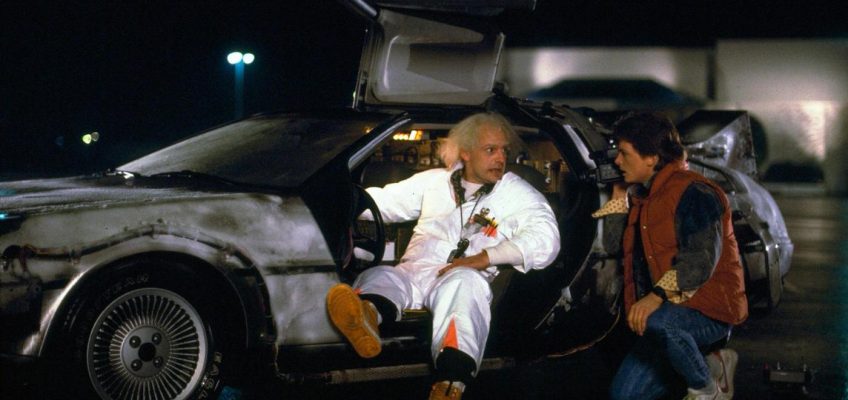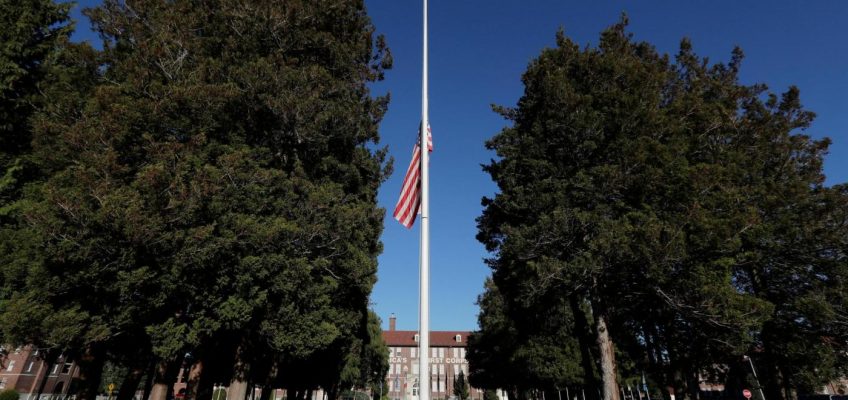By Ryan Behr, Tribune News Service
There is much more to do in Europe than visiting landmarks on a fixed schedule with a tour guide who attempts to sound excited about 14th-century architecture. I am not against taking tours when you go to a foreign country, but I am opposed to having a fixed regimen when traveling. From some experience (I am still in high school), I can attest that having everything planned in advance can take away from the sense of freedom and wonder you get when you enter a country that is different from your own.
Related Articles
Five perfect weekend trips to take this fall
Finding happiness in amber: On Germany’s Baltic coast, people go hunting for the precious pieces
Minnesota 11-year-old climbs Mount Kilimanjaro
Celebrity launches first river cruises in 2027 with two new luxury ships
Joshua Tree is otherworldly. At this new hotel, you’ll feel like you’re sleeping on Mars
I am just back from a European excursion with my father, having visited together numerous destinations across the northern region of the continent. We began in an unusually sunny Hamburg, Germany, where we stayed for five nights before taking the relaxing five-hour train ride to Copenhagen, the capital of Denmark. Before long, an issue presented itself: although we had both been to Germany a few times in the last five or so years, I had never seen Denmark, and my father had last been there before I was born. As a result, aside from some brief online searches, we did not have any prior knowledge of activities to do or places to see, aside from the event the trip was essentially planned around: an FC Kobenhavn football (soccer) match.
The feeling of not knowing what we were going to do was actually liberating. It opened up a myriad of possibilities – except for long walks because my dad was suffering from a leg issue that hampered his ability to manage more than a few city blocks a day. That meant my suggested eight-mile walk around the city was out of the question.
When one looks up “Copenhagen pictures” online, almost all the immediate search results are of the port called Nyhavn, literally meaning “new port.” We decided to take the three-minute, two-stop metro ride to get there from our hotel, the Villa Copenhagen. Upon arriving, one is greeted with a multitude of beautiful canal-front buildings ranging in color from a pale yellow and blue to a dark red and brown. Out of the corner of my eye I saw that there were boat tours available, so I directed my father’s attention to them, and we decided to go on the nearest one, which was leaving in bare minutes.
Ships in Nyhavn, the canal district of Copenhagen. (Alan Behr/Alan Behr/TNS)
The canal boats cannot be much more than about six feet tall above the waterline because of the need to travel under low canal bridges. If a boat were just one foot taller, it would likely collide with a bridge and result in some very tedious paperwork.
Upon entering our canal boat, we were greeted by a polite teenaged Danish boy named Emil. He was not only fluent in both Danish and English – the two languages the tours were usually conducted in – but he also, at the request of two German passengers, provided commentary in their language as well. On the boat there were three seating sections. The bow area, which was not covered, consisted of about ten seats; the main section directly behind that was covered on the sides and on top by durable glass, and a third open section at the stern held only a few people, some in wheelchairs. We tried the bow until spray drove us literally indoors.
The Little Mermaid, from a waterborne view. (Alan Behr/Alan Behr/TNS)
Throughout the trip, Emil made the experience very enjoyable by cracking jokes in three languages and keeping the passengers engaged by insightful commentary about all destinations. We traveled through some of the lesser-known districts and got to see Copenhageners through a lens that someone who booked a walking tour might not have had the benefit of seeing. After disembarking and buying an overpriced seafood lunch, we headed towards the famed Tivoli Gardens, which was thankfully only a block away from our base at the Villa Copenhagen, directly opposite the main train station.
The Tivoli Gardens ended up being a delight; my dad and I rode bumper cars, ate cotton candy and got to shoot air guns side-by-side. I beat him at first — before he got one very lucky quadruple-bullseye round and won us two little stuffed bears. (He does not let me forget he learned to shoot while growing up on a ranch.)
Ryan Behr in the shooting gallery of Tivoli Gardens. (Alan Behr/Alan Behr/TNS)
The next day, however, we found ourselves wondering how to spend our time. Being a big fan of New York City FC (the professional soccer club of my hometown), I decided to look up if there were any football games happening near us. It was then when I happened to remember that, courtesy of a bridge over the Oresund Strait, Copenhagen is a short train ride from the city of Malmo, Sweden. Almost as a joke, I looked up whether Malmo’s top football team, Malmo FF, would be playing that evening. To my shock, it turned out that, within hours, they were to play an important game to qualify for a continental competition.
The polular Hojbro Plads (High Bridge Square) in central Copenhagen. (Alan Behr/Alan Behr/TNS)
After putting on warmer clothes, we embarked upon our unexpected jaunt into another country. Upon arriving, we got to observe the immense pride this city of more than 365,000 inhabitants has for its team. Flags with the team badge were all over the busy Mollevangstorget Square, and restaurants there were serving fixed game-day meals to cater to the fans on their way to Eleda Stadion. We managed to find a restaurant owned by one of the around 2,000 Indians in the city and were treated to a tasty and unique dining experience.
After taking the 20-minute cab ride to the stadium, and speaking with a taxi driver about the pride he felt both for his new team as a longtime immigrant, we reached the stadium with ample time to do some merch shopping. Arriving at our seats just before the start of the game, my newly bought Malmo FF scarf in hand, I noted that Malmo’s ultras, or hard-core supporters, were very impressive. I saw a seemingly endless swarm of flags, drums, pyro and jerseys and scarves with the team logo, the supporters singing, chanting and cheering in unison. I loved that some of their chants were taken from the same South American team songs from which NYCFC fans get theirs, so I knew some of the words. They also sang a team song to the tune of The Beach Boys’ “Sloop John B”; my father and I had a good laugh at when we recognized the familiar tune.
FC Kobenhavn vs. Odense Boldklub, Parken. (Alan Behr/Alan Behr/TNS)
Following a win by Malmo FF, I chatted with some fans who were eager to profess their love for their club; what stuck out to me was the immense pride and passion this city has for its football team.
A few days later, after much anticipation, came the main event: FC Kobenhavn vs. Odense in the almost 40,000-seat Parken Stadium, just twenty minutes away from our hotel. My first brush with Danish club fans happened right in front of the map in the metro station. I was asking a man, whose name I later found out was Arne, for directions, but he seemed as lost as I did. I then saw the scarf he was wearing: it was of the rival team, Odense! We eventually found our way, and alongside his Scottish friend, Craig, boarded the crowded train and talked for the whole ride about U.S. Major League Soccer, why my dad and I were there, why we should support Odense (so insisted Arne), how Odense had a rivalry with Copenhagen because the capital’s citizens supposedly look down upon those who live elsewhere — and why we should support Odense (so insisted Arne).
Because Parken is almost twice as large in terms of capacity than the stadium in Malmo, I had high expectations for the enthusiasm of the local team’s ultras. Throughout the game, however, I found myself secretly rooting for the other team, as I felt connected to the city of Odense because of that one very kind man who had shown the heart to talk to me alongside a Scotsman for an entire train ride. For me, wherever in the world I have visited so far and seen games, that connection among supporters is what football is all about.
(Ryan Behr is a junior at Columbia Prep in New York City who often travels abroad with his dad.)
©2025 Tribune Content Agency, LLC.




